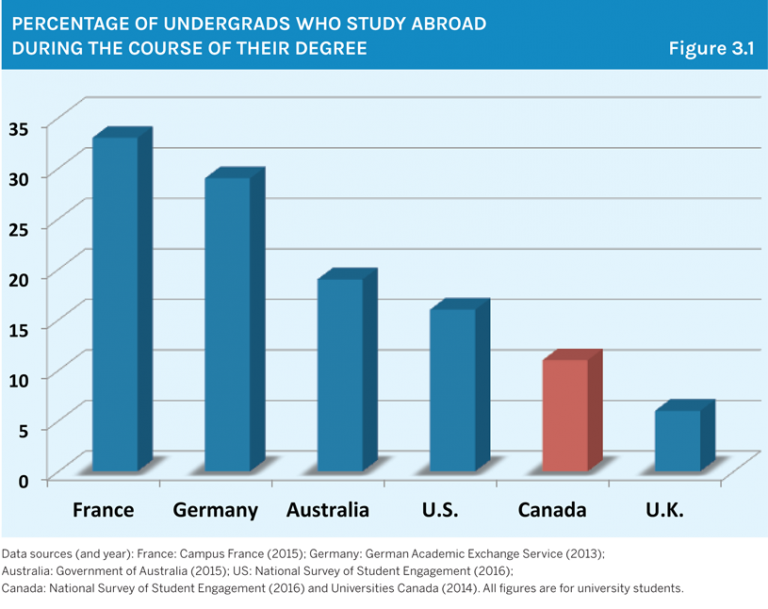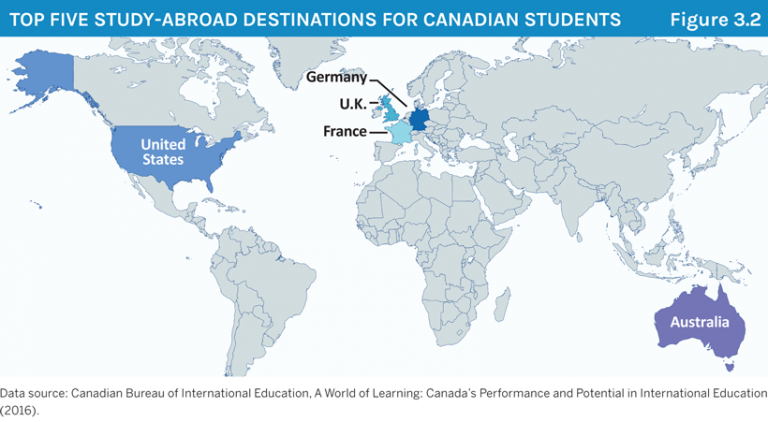Is Canada prepared for the challenges that lie ahead?
That was the question that I – and the other members of the Study Group on Global Education – asked ourselves this year as we looked at Canada’s approach to global education.
Our conclusion: Canada is not ready. Our young people are not ready. And we as a nation need a more strategic and ambitious approach to global education.
The study group was chaired by Margaret Briggs (Queen’s University) and Roland Paris (University of Ottawa). Other members came from industry, academia, government and NGOs across Canada. The group was formed in May of this year in order to take a fresh look at Canada’s approach to global education.
We released our report, Global Education for Canadians: Equipping Young Canadians to Succeed at Home and Abroad, on November 8. Its findings and recommendations should be seriously considered by everyone concerned for the future of this country.
In the report, we argue there is a compelling interest in equipping young Canadians with the skills and competencies they will need to navigate the world’s challenges. Young Canadians need to be comfortable working with people from different backgrounds, they need self-awareness and self-confidence, a willingness to take smart risks and knowledge of the world and other societies. As we note, “These are not luxuries in the 21st century; they’re vital skills.”

Global education fosters these skills but Canada has no national strategy to enable our students to go global. Although individual universities and colleges – including UBC – have programs that encourage student participation in international learning, the proportion of young Canadians who take advantage of such programs is small – only 10 percent of Canadian undergraduates study abroad during the course of their degree, compared to 15 percent of Americans, 18 percent of Australians and 32 percent of French students.

Those Canadians who do go abroad travel to a few traditional destinations such as western Europe, the United States and Australia. Although they gain valuable experiences and memories going on these well-trodden roads, we need more students to travel to other parts of the globe. As the report notes, by the year 2050, Mexico and Indonesia are likely to have larger economies than the UK and France, while Vietnam, India and Bangladesh could have the fastest growing economies. Our students need to be familiar with these countries, as well as France, England and Italy.
International education benefits students in many ways. It is associated with higher academic scores and degree-completion rates as well as higher employment rates and salaries after graduation. These benefits are strongest among students from less advantaged backgrounds. As we note in the report: “the opportunity to study or work in another country can be a great social and economic equalizer.”
Although global education opportunities benefit low-income students, cost (understandably) is the major reason given by students for not participating in such opportunities. UBC – and other universities – offer scholarships and other financial aid that can offset the costs, but we need to ensure that students are aware of these resources.
Other reasons for not going abroad include concerns about delayed graduation, inflexible university policies, and lack of knowledge of opportunities. UBC is working to mitigate these factors – we want to ensure that every student is aware of, and able to take advantage of, the opportunity to travel abroad as part of their education.
As we write in the report:
“Now is the time to invest in Canada’s young people. Their future – and Canada’s future – depends on it.”
Best wishes
Professor Santa J. Ono
President and Vice Chancellor




